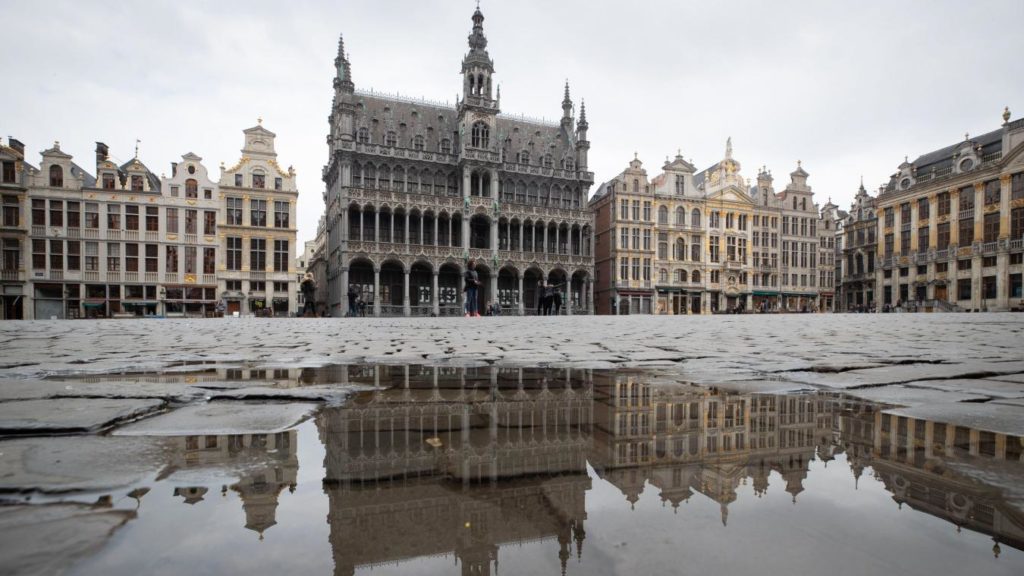As the Covid-19 virus continues to sweep the globe, one cannot help but think of its seemingly equalizing effects.
From travel bans affecting the world’s most developed nations, to over-strained health systems in the world’s most powerful economies, to unsettling scenes of empty supermarket shelves worldwide, a shadow of equality has been cast over the world.
Travel bans imposed on the “Global North” by the “Global South”
Headlines such as “African countries shut doors against Europe, America to combat coronavirus”, sounded almost surreal a few weeks ago, as several African governments rushed to close borders in an attempt to curb the spread of the virus.
The scenario is clearly astonishing as such moves are considered to be a typical reaction of the West at every disease outbreak originating in the developing South.
Suddenly, annual global passport indexes, typically ranking travel documents based on the mobility freedom of citizens, were harshly debunked.
Ironically, an invisible virus has reset the definition of free mobility, by simply stripping every human of this freedom, regardless of their rank on that index.
As a holder of one of the least powerful passports myself, I could not help but feeling unsettled by such headlines.
The disruption of the global transportation network has ironically equalized access (or rather denial) to what used to be a luxury only two months ago: Travel.
Panic-buying redefined ‘civism’
As the virus started to gain ground in more and more countries, disturbing scenes of panic-buying and hoarding, dominated social media feeds and TV screens. Supermarket shelves, from the far West to the far East, have been stripped bare, which led to imposing restrictions on purchases in some countries.
Classical theories of herd behaviour and directionless action, stemming from the very human instinct of basic survival, won the day.
It looks like panic knows no race, religion or social class. Threat calls for impulsive and thoughtless actions.
Danger is danger, whether you are fleeing a war zone, being forcibly separated from family or simply stripped of your fundamental rights.
Would we witness the end of xenophobia and ungrounded hostility once this health crisis is over? Would empathy, altruism, global cooperation and deep understanding among humans make a come-back? Or would humanity slowly revert back to the so-called “compassion fatigue”?
Healthcare systems challenged to the core
Public authorities were almost everywhere caught off guard by the rapid spread of the virus.
We have heard repetitive addresses of top world leaders, almost desperately calling their populations to stay home, to help them ease the strain on an already-burdened healthcare system.
From North America, to Europe and Asia, healthcare systems have been found to be at worst severely underequipped and at best ill-prepared to handle a large-scale health crisis of this magnitude.
The level to which the public has been tremendously exposed, is almost unprecedented.
We all stand an equal chance of being infected
Viruses do not acknowledge social status, economic classes or race.
From famous athletes to key political figures, literally everyone ironically stands “an equal chance” of contracting the virus.
In fact, in absence of a cure, battling against the virus from a top-notch mansion or a makeshift tent does not make that big of a difference. A resilient immune system, however, does.
I wish I could be a dreamer, but safe quarantining is a privilege
Despite the seemingly equalizing nature of this pandemic, the “working class“ has been unfortunately scapegoated.
The classical societal divide between the haves and the have-nots is being translated today into tough questions such as: “who can afford the luxury of working from home and who cannot?”
For example, only one in four US workers have a job that allows them to work from home.
Not having the option to undertake remote work essentially means; either being left in the forefront, at high risk of infection, thus bearing the sacrifice of serving the nation or being temporarily dismissed with the heavy brunt of making ends meet.
Self-isolation sadly comes with a cost that not all citizens are equally prepared to bear. The togetherness-filled rhetoric of “We are all in this together” undermines the intensity of societal privileges.
It is a privilege not to be at the bottom of the social ladder, all the more so in times of Covid-19.
It is a privilege not to be stranded in a congested reception centre between sea and land, awaiting to vanish either by a pandemic or by a mere indifference.
Twenty-four human rights and humanitarian organizations have urged the Greek government to ease congestion in the islands’ reception and identification Centres.
In Bangladesh, the persecuted Rohingya community has been asked to quarantine in their camps “until further notice,”while thousands of migrant workers fled New Delhi on foot, as a national lockdown was declared in India.
Can we now put “social distancing” into perspective?
Can we reassess the meaning of “We are all in this together ” till we can truly live up to the saying?
I do not wish to leave you with the impression that pandemics are evil dividers, because there is still a chance to convert them into potential equalizers.
It all starts with every one of us acknowledging our privileges and vowing to fight for cooperation, openness and a real universal access to fundamental rights, once this symbolic fight against Covid-19 is over. Would you?
Samia Fitouri


